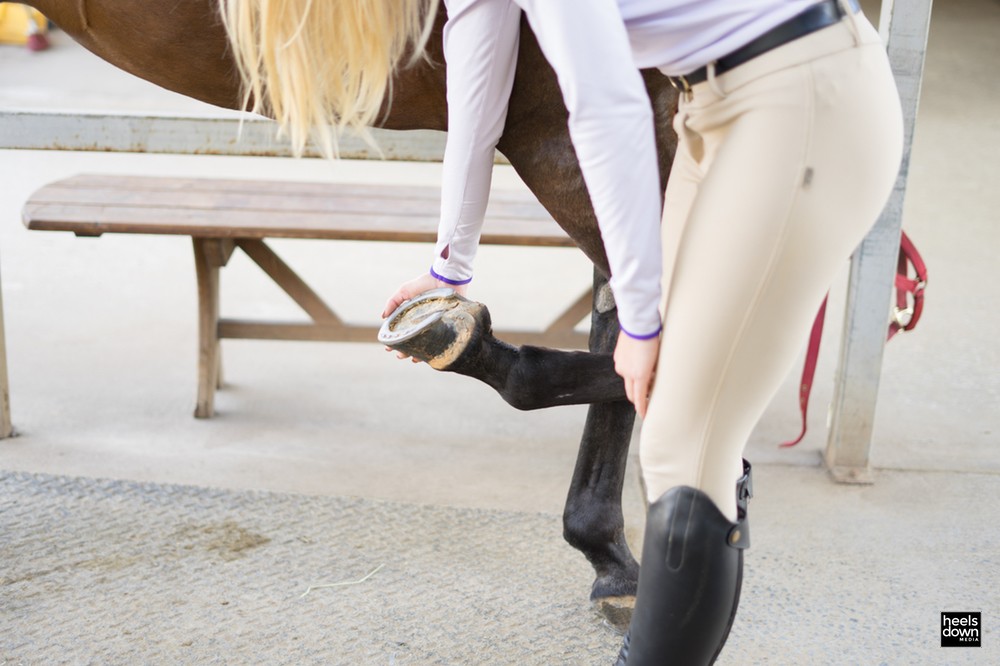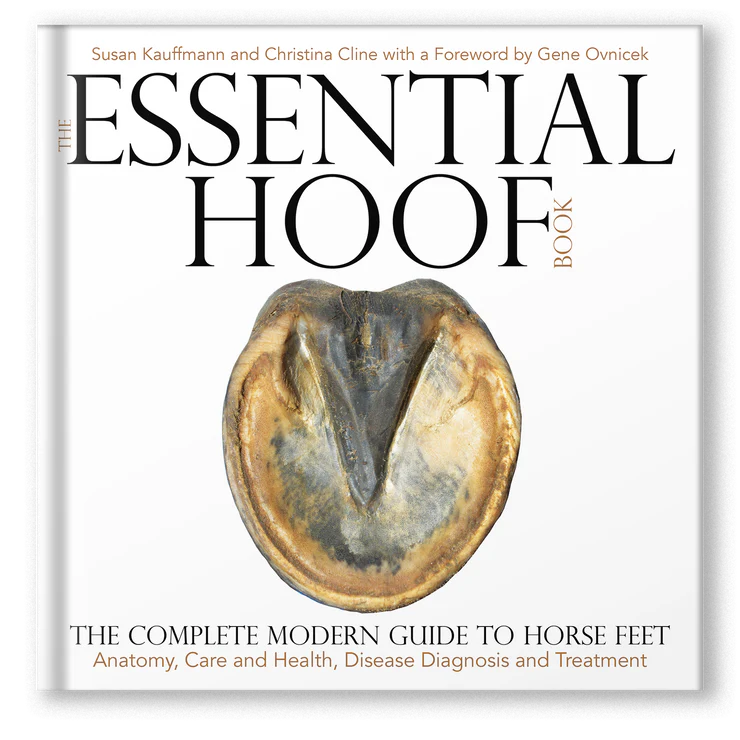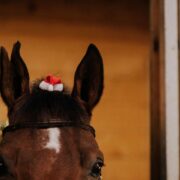AMA: How Do I Feed For Healthy Feet?

We’ve learned more recently that diet plays a major role in hoof health in horses. What are the key nutritional components I should be thinking about when feeding for healthy feet?
“Diet certainly does play a critical role in hoof health, which in turn can affect the overall health and even the life of the horse. Laminitis, for example, is the second leading cause of death among domestic horses, with the majority of cases being triggered by excessive intake of sugars and/or starches, otherwise known as non-structural carbohydrates (NSC).
Horse owners wanting to feed for healthy feet should therefore start by assessing the amount of NSC in their horse’s diet. Ideally, one would get an analysis done on forage sources (hay and grass), and whenever possible choosing forage with sugar + starch adding up to no more than 10% in the ‘as fed’ column of the analysis for average to easy keepers or horses with metabolic issues, and no more than 15% for hard keepers.
Feeds containing oats, wheat, corn or other grains are best avoided altogether due to their high starch content, and anything with sugar or molasses should also be minimized in a hoof-healthy diet. Hard keepers or hard-working horses that need extra calories can be more safely supplemented with fat-based products instead of those containing high amounts of sugars or starches.
In addition to NSC, you also want to ensure that your horse is getting enough protein in the diet, as this is where the amino acids that are important for building strong hooves come from. Once again, a good hay analysis is key, as it will tell you how much protein is in your horse’s forage, as well as the amount of lysine, which is an essential amino acid necessary to form the keratin that makes up the hoof wall, and which is often deficient in forage.

Having the correct amounts and the correct ratio of the trace minerals copper and zinc, as well as the correct amount of selenium, are also important aspects of hoof health. Many horses are deficient in copper and zinc due to the depletion of these minerals in our soils, as well as excess consumption of iron, which can interfere with the body’s ability to utilize copper and zinc. As for selenium, some areas have plenty in the soil, which means there is plenty in the forage, while other areas are known to have deficiencies. It is important to find out which category your forage source area falls into, as the amount of selenium a horse requires is very
small, and feeding too much selenium can lead to toxicity.
Vitamins are another important part of hoof health, particularly vitamins A and E, which are usually present in adequate amounts in pasture, but which diminish rapidly – within a few months – once grass is cut and dried for hay. Most vitamin/mineral mixes formulated for horses contain both A and E, though many do not contain enough zinc or copper to meet the required amounts of those minerals, and many contain additional iron, which is generally best avoided.
As for supplements specifically aimed at improving hoof health, they are probably a
waste of money if your horse is healthy and you are feeding a balanced diet. Most hoof supplements contain the B-vitamin biotin and sometimes amino acids such as lysine and methionine. A healthy horse produces sufficient amounts of biotin in the hindgut, so additional biotin shouldn’t be necessary, and if its protein sources are good, the horse shouldn’t need extra amino acids either.
That said, such supplements are not likely to cause any harm, so if you want to try them, that is certainly something you can choose to do. Other supplements that can be helpful to maintaining healthy hooves are those that contain Omega-3, such as flax or chia seeds, especially if the horse doesn’t have access to fresh pasture.
Ultimately, the best possible way to ensure that your horse’s diet is on point for hoof health and overall health is to have a forage analysis done, then work with a qualified equine nutritionist to determine what you should be adding or reducing in the diet.”
Susan Kauffmann is the lead author of “The Essential Hoof Book.” She has been a professional in the horse industry for over three decades. The early part of her career was devoted to training and coaching, then in 2004 she branched out to become an equestrian journalist and photographer specializing in topics relating to equine health and welfare. She has been widely published in magazines such as EQUUS, Trail Blazer, and Western Horse Review, for whom she also served as Health Editor. In addition, Susan has written content for a number of courses for Michigan State’s “My Horse University” program, gives educational classes and seminars for horse owners, and still trains horses and riders using a blend of classical and natural horsemanship philosophies. Susan lives with her husband, three horses, a mini donkey, and various cats and dogs in northern Nevada, where she is active in wild horse advocacy and rescue.
AMA:
Got a question for us? Send it over and we’ll find the answer: [email protected]


